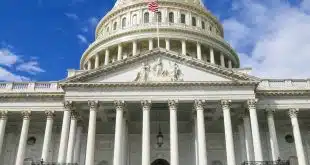Thanks to an influx of technological advancements, individuals now have more choices than ever to save and manage their money. But ensuring that financial tools are best serving consumers takes cooperation among regulators, policymakers, and the private sector.
Recently, Federal Deposit Insurance Corp. Chairman Jelena McWilliams said the agency will be releasing its proposal on updating the definition of brokered deposits for the 21st Century by the end of the year. This is a positive sign that the FDIC is working to understand how yesterday’s regulations should keep up with today’s technology.
Revolutionary payments technologies have changed the way money flows into the banking system. Branches are no longer the only way that banks receive deposits. Now, funds flow into banks through mobile wallets, ATMs, and a variety of apps.

As a result, Congressional leaders and the FDIC have revisited the definition of a “brokered deposit.” Congress established the definition in 1989, well before the current payments revolution.
The original definition was aimed at brokers, individuals, or companies that move large numbers of accounts from one bank to another in an effort to maximize the return on their deposits. This investment technique gave rise to the term “hot money.” To safeguard against the potential risk associated with a broker quickly moving large amounts of capital from a bank’s balance sheet, the FDIC subjected these deposits to higher insurance premiums, heightened scrutiny, and additional regulations.
Since then, the FDIC has expanded the definition of a brokered deposit to mean any deposit that is placed in a bank via a third party, subjecting any non-traditional, third-party banking entities, such as a program manager or fintech bank, to additional rules and regulations. The FDIC’s 2015 FAQs on brokered deposits for the first time classified deposits placed into federally regulated prepaid bank accounts as brokered, simply because many prepaid issuing banks utilize third parties to help deliver prepaid accounts to consumers.
The FDIC’s misclassification means that financial institutions that want to work with prepaid account providers—which include traditional prepaid debit card platforms, person-to-person payments services, and mobile-wallet providers—will pay significantly higher deposit insurance premiums to the FDIC. Ultimately, these roadblocks will impede innovation and slow the progress that has helped to reduce the number of unbanked or underbanked individuals in the United States.
But because these deposits are held to facilitate transactions, as with other core deposit accounts, it is clear they do not pose the same risk to our financial system as those placed by a deposit broker who moves hot-money accounts from bank to bank chasing interest rates.
Earlier this year, FDIC Chair Jelena McWilliams took a very big step in publicly requesting feedback regarding the agency’s approach to the outdated definition of brokered deposits, citing it as a top priority. A broad coalition of lawmakers and financial-services companies agree with the Chair’s decision to review the 30-year-old law.
So, how can the FDIC remedy the frustration caused by its FAQs, which the agency updated in 2016? The solution is simple: It can learn more about the fintech marketplace by listening to innovators and customers alike. Thankfully, that is what the FDIC appears to be doing by establishing an Office of Innovation to directly engage with innovators in the banking sector.
Along the way, we remain hopeful that the agency will acknowledge that prepaid accounts, and therefore all third-party payment providers, fall under the brokered-deposit law’s “primary purpose” exception. The exemption draws the line on what is considered “brokered” by looking at the main function of businesses, which in the case of the prepaid accounts is enabling transactions, not deposit brokering.
Without a clear line, questions will continue to linger about this definition and negatively impact the banking sector. This outdated definition needs to be changed for the sake of consumers and businesses that rely on these technological advancements to live healthier financial lives.
Brian Tate is the president and chief executive of the Innovative Payments Association, Washington, D.C.




